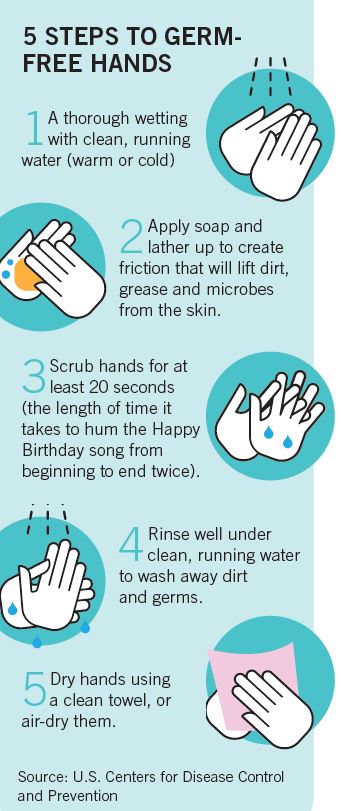Doing these two things is your best defense.
Flu season, which lasts from approximately October to May, is coming.
The flu generally peaks during the colder months, when people are more likely to congregate inside and spread germs. “But people should know that the flu virus is here all year, even in the summer, so it’s a good idea to take precautions,” saysChristopher Freer, DO, Clinical Chair of Emergency Medicine at Saint Barnabas Medical Center.
 TAKE YOUR SHOT
TAKE YOUR SHOT
The first and most important step is to get the flu vaccine, ideally early in the fall.
“Don’t wait until January when the flu is spiking and you can’t find the vaccine,” Dr. Freer says. “I would recommend getting it in August or September.”
Because there are multiple types of flu viruses and they are constantly evolving, the composition of the flu vaccine— and often, its effectiveness—varies from year to year.
“Some years they get it right. Some years the flu is a little smarter and your vaccine isn’t as effective,” Dr. Freer says. “But it’s worth getting the shot in any case. What we’re seeing is that patients who are vaccinated might get the flu, but their symptoms are not as severe as those of people who didn’t get the shot.”
Freer says vaccination awareness is increasing because people are seeing more media reports about influenza-related deaths. “You read awful stories about people, including children, dying,” Dr. Freer says. “Many of those patients were not vaccinated.”
Flu shots are recommended for anyone over the age of 6 months, especially people in a high-risk group for flu complications. Those groups include pregnant women, young children, people over age 65 and people with chronic health conditions like asthma, diabetes or heart and lung disease.
EVERYDAY PRECAUTIONS
All it takes to spread the flu is one cough in a crowd, “Then the virus is airborne, and there’s a six-foot radius where there are droplets you can inhale and get it,” Dr. Freer says. Germs can also contaminate common spaces such as door handles, faucets and bannisters. It’s possible to get the flu by unknowingly picking up germs and then touching your eyes, nose or mouth.
Dr. Freer’s silver bullet to combat the flu is old-school handwashing, and plenty of it.
“When they teach us as residents about the 10 most common causes of infection, they show you 10 fingers,” he said. “I cannot stress it enough. You really have to be a germaphobe. With all the high-tech stuff now, it still comes down to that.”
Handwashing the right way is different from the quick soap-and-rinse most people do. Research has shown that a full 20-second scrub, including lathering the backs of hands, between the fingers and under the nails, is necessary. If soap and water are not available, an alcohol-based hand scrub is the next best thing.
To find a primary care physician at Saint Barnabas Medical Center, call 888.724.7123 or visit our website.